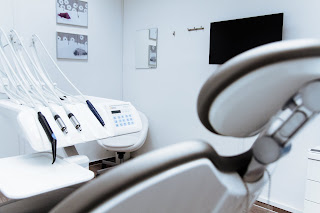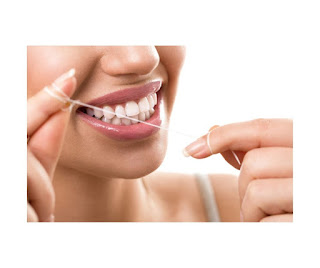What is a TMJ (temporomandibular joint) Disorder?
What is a TMJ (temporomandibular joint)
Disorder?
A major cause of chronic pain may be a TMJ or temporomandibular joint disorder. The TMJ connects the jaw bone on either side to the skull bones. The TMJ is crucial to the functioning of the jaw because it helps you open and close your mouth comfortably. Chewing, coughing, yawning and speaking also depend on the TMJ working in prime condition. However, TMJ disorders can lead to pain around the joint and also manifest as headaches and soreness around the teeth. Assessment of TMJ problems is important to lead a healthy and pain-free life. Learn more about TMJ disorders and they can be managed here:
What are the Symptoms of TMJ Disorders?
TMJ disorders may be identified through
the following symptoms:
- Painful jaw muscles
- Sore and tender teeth and gums
- Swelling around the jaw area
- Morning headaches
- Clicking or popping sound on eating,
yawning or shouting
- Jaw seeming to slide out of position
- Teeth fitting unevenly or uncomfortably
- Neck pain
- Jaw ‘locking’ on opening wide or closing
tight
What Causes TMJ Disorders?
TMJ disorders are multi factorial. They may
occur due to a variety of reasons such as hereditary causes, joint anatomy at
birth, or others such as:
- Dental Causes
Tooth alignment of the mouth is disrupted
by even a single missing tooth or out of position. The TMJ joint is affected by
how the teeth of the upper and lower jaw meet each other. Any factor that makes
teeth contact each other improperly directly causes a TMJ malfunction or a
disorder. An exaggerated thrust of the lower jaw, upper and lower teeth that do
not meet or over-close are examples of improper jaw positioning that can lead
to TMJ problems.
- Stress and Psychologic Factors
Emotional Disturbances such as stress,
anxiety, and depression play a role in TMJ disorders. This is because high
tension and stress lead to behavioral changes in the chewing and biting
mechanisms. As a result, dysfunctional temporomandibular joint positions are
created that cause headache as well as pain and soreness around the TMJ.
- Trauma
A physical injury or blow directly to the
TMJ or to the chin can result in TMJ disorders. Fracture of the jaw bone can
also lead to pain, clicking or sliding of the TMJ.
- Oral Habits
Certain oral habits that are
non-productive can lead to TMJ dysfunction. These include:
· Teeth grinding or bruxism
· Teeth clenching
· Excessive and frequent gum chewing
· Teeth grinding or bruxism
· Teeth clenching
· Excessive and frequent gum chewing
How Are TMJ Disorders Treated?
Early diagnosis and treatment of TMJ
disorders can help manage them and prevent further damage to the joint. Teeth
cleaning in Roswell, GA can help assess the dental status of the teeth and
identify causes of TMJ problems. Management of TMJ disorders include:
1. Medication
Muscle relaxant drugs and painkillers help
reduce pain and tenderness of the jaw, face and neck muscles. Steroids may also
be used to alleviate inflammation of the TMJ.
2. Physical Therapy
A tender joint can be treated through
physical therapy that helps ease pain, relieve muscle spasms of the jaw
muscles, and restore normal movements of the jaw.
3. Occlusal Splints
Nightguards or occlusal splints help in
providing relief to sore teeth and jaws. They prevent tight clenching of the
teeth and break the cycle of unhealthy jaw tightening.
4. Orthodontic Treatment
Dental treatment to correct improper jaw
alignment can help resolve TMJ disorders. Tooth adjustments and corrections can
help the jaw close properly and reduce abnormal movements.
5. Surgery
If other treatments do not provide relief,
surgery of the TMJ may also be a treatment option to regain free movement of
the jaw without pain.
For more information on TMJ disorders and
their treatment call dentist in Roswell, GA - Sunshine Smiles Dentistry in Roswell at 770-998-8116 and schedule a consultation with the expert
dentists today! You can find them at:
Sunshine Smiles Dentistry
365 Market Place ste 100 Roswell, GA 30075
Phone: (770) 998-8116




Comments
Post a Comment